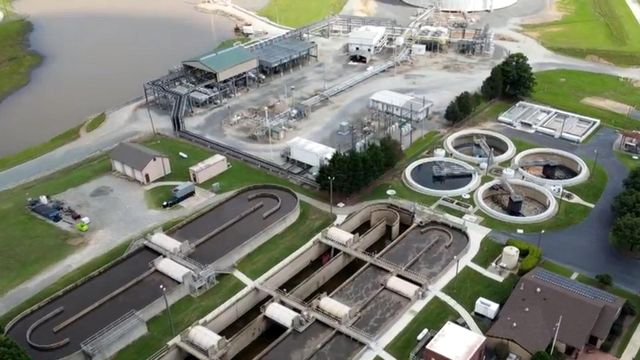Wastewater tests show NC hasn't flushed virus yet
While many coronavirus testing sites have closed up during North Carolina's vaccination push, state health officials continue monitoring the virus through various means, including testing wastewater.
Posted — Updated"It's not the most glamorous of topics," Durham County Health Director Rod Jenkins said, "but we do know from studies [that] people who are infected with COVID-19 are able to shed viral particles when they pass waste."
Wastewater tests are valuable in determining how to attack the virus, Jenkins said, especially as the highly infectious Delta variant becomes more prevalent in North Carolina.
"We have periods of time when things are relatively fine and have periods of time when things are relatively high," he said of the ongoing pandemic.
Another 543 coronavirus infections were reported in North Carolina on Friday, pushing the rolling, seven-day average up for the third straight day after weeks of stability. New cases have jumped 52 percent over the past week.
The Centers for Disease Control and Prevention estimate about 12.5 percent of the cases in North Carolina now are the Delta variant, and that number is rising.
Wastewater samples from the Triangle Wastewater Treatment facility, on N.C. Highway 55 in south Durham, shows the virus is making a resurgence.
In early February, when fewer people were vaccinated, wastewater tests showed an average of nearly 24 million viral gene copies per person. That declined fairly steadily over succeeding months, dropping to a low of 200,000 by mid-June, before spiking back to more than 12 million at the start of July.
"We take every bit of information seriously," Jenkins said.
The Durham County Public Health Department uses the data to help decide exactly where they are going to dispatch their vaccination clinics.
"South Durham continues to be on our target list," he said. "At every vaccination site we set up, we always do canvassing. We know that we just can't set up tents for an outside vaccination event and just expect people to come."
DHHS data shows that the virus remains low in Raleigh's wastewater but is trending up, from about 1 million viral gene copies per person at the start of June to nearly 4 million by the end of the month.
In Chapel Hill, the virus in the wastewater is even lower and has remained stable, at about 300,000 viral gene copies per person, since early May.
Related Topics
• Credits
Copyright 2024 by Capitol Broadcasting Company. All rights reserved. This material may not be published, broadcast, rewritten or redistributed.





